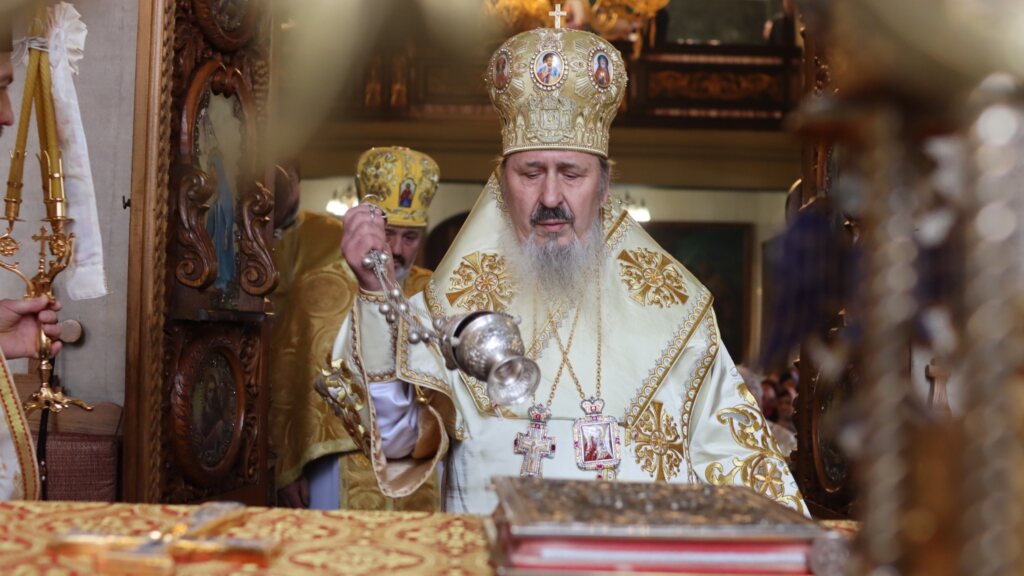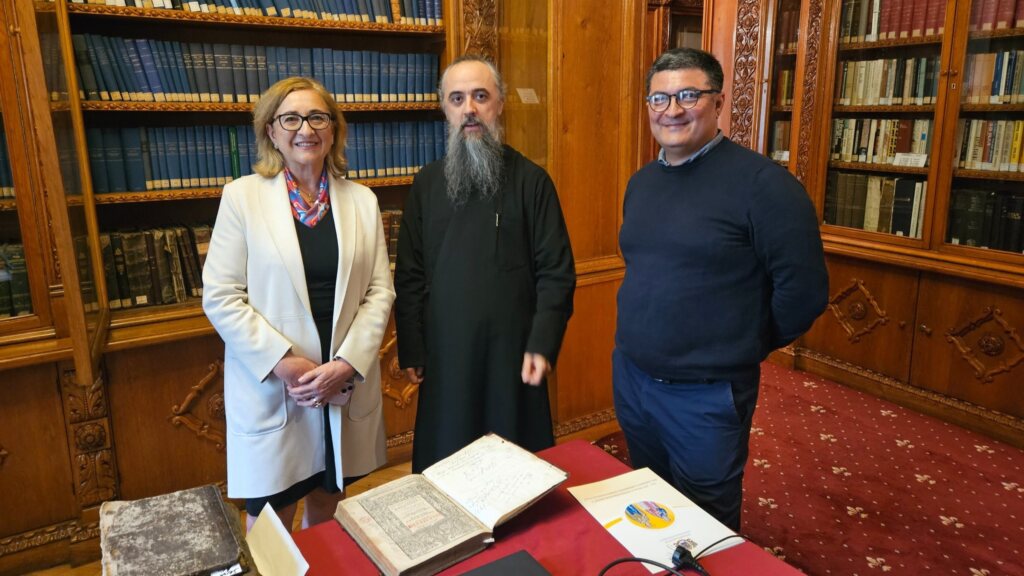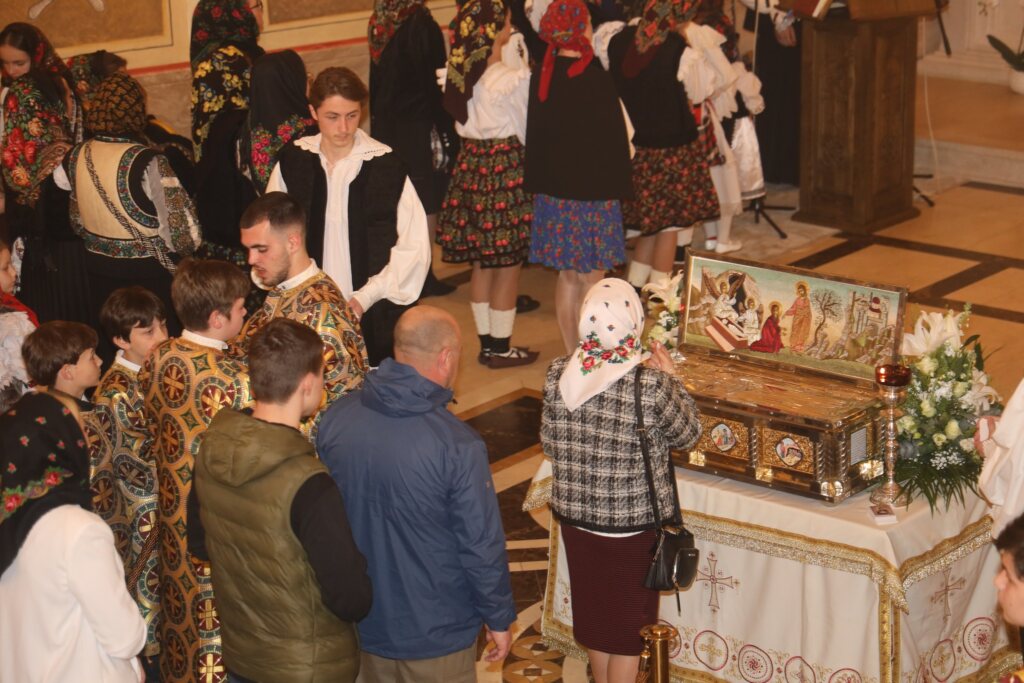On the seventh Sunday of Pascha, His Beatitude Patriarch Daniel spoke about the First Ecumenical Council of Nicaea, a remembrance that makes the connection between the feast of the Ascension of the Lord and the Descent of the Holy Spirit.
“The Holy Fathers of the First Ecumenical Council taught and testified against the heresy of Arius of Alexandria that Jesus Christ is the eternal Son of God, who is consubstantial with the Father and was incarnate of the Holy Spirit and the Virgin Mary and became man for our salvation. This is stated in the first seven articles of the Creed, which were formulated by the 318 Holy Fathers of the Ecumenical Council of 325 in Nicaea.”
True faith, a living relationship with God
“This Council testified to the deity of Jesus Christ. Arius the heretic said that Jesus was a deified being and not true God as the Father. The Fathers of the First Ecumenical Council laid the foundation of the Orthodox faith according to the apostolic faith and the Holy Scriptures. This profession of the divinity of the Son is essential for salvation,” the Patriarch of Romania said.
“Why is true faith necessary for salvation? Because faith is not a simple statement of words, a simple intellectual conviction, the right faith is a living relationship with the ever-living God,” His Beatitude Patriarch Daniel stressed.
“If we do not confess the true identity of the everlasting living God, we cannot attain eternal life because it is precisely the living relationship with God, the Source of eternal life. Therefore, it is not a philosophical choice, but an existential, living relationship with the true God,” the Patriarch explained during his sermon on June 5.
High Priestly Prayer – a source of light for the leaders of Christian communities
Reflecting on the gospel reading, Patriarch Daniel spoke about the High Priestly Prayer and noted that “the Saviour does not speak of the unity of the Church in a speech, but in a prayer.”
“The High Priestly Prayer of the Saviour is a source of light for all those who have received the entrustment of Christian communities, all those who are archpastors in their dioceses and parishes. This prayer shows that he who is a shepherd must be accountable to God for the way he has guarded those entrusted to him for pastoral care, for the way he has kept them in communion.”
“This High Priestly or Pastoral Prayer is also a revelation that the Persons of the Holy Trinity are not next to each other, but one in each other; they are mutually internal to each other. God the Father is the Source of the Being, but He shares His Being with the eternal Son and the Holy Spirit; The Son is eternally begotten of the Father, and the Spirit proceeds eternally from the Father.”
“Therefore, the unity of the faith also means the confession of the love of the Holy Trinity.”
The unity of the Church, in a state of prayer and communication with other Orthodox
“Significantly, when Jesus speaks of the unity of the Church, he is not offering any worldly institution as a model. Jesus did not say that the Church should be one like the Roman Empire or the Greek Republic, but He said that it should be one as We are one. The model and source of the unity of the Church is the Most Holy Trinity.”
“But it is not enough to confess the Creed,” the Patriarch noted. “We must also pray for the unity of the Church.”
“This Sunday shows us that unity must be maintained by confessing the true faith but in communion with the whole Church. That is why the Fathers formulated the Creed in communion not alone, each in isolation, at home, in errors or division.”
“The unity of the Church is maintained in a state of prayer and communication with the other Orthodox, with the other right-believing people.”
Three exhortations
At the end of the sermon, His Beatitude Patriarch Daniel summed up three exhortations of the feast of the Holy Fathers of the First Ecumenical Council:
“We must know the Orthodox Creed, learn it by heart, and pass it on to our children and to all who wish to be enlightened and strengthened in the faith.”
“We need to pass on the values of the Orthodox faith in the family and the community, to profess the true faith in the face of many errors that have always existed and still exist today – a lot of sects, ideologies and erroneous teachings that try to confuse people and draw them away from the apostolic and patristic faith of the Ecumenical Councils.”
“Let us teach our Orthodox believers to keep in touch with the Church, to learn what is essential for the preservation of the faith, namely the Our Father, the Creed, and to have in their home the Teaching of Orthodox Faith or an Orthodox Catechism, where explanations are given regarding not only the faith but also the Orthodox lifestyle”, Patriarch Daniel urged on the seventh Sunday of Pascha.
Photography courtesy of the Basilica.ro Files
Follow us on Twitter: @BasilicaNews






